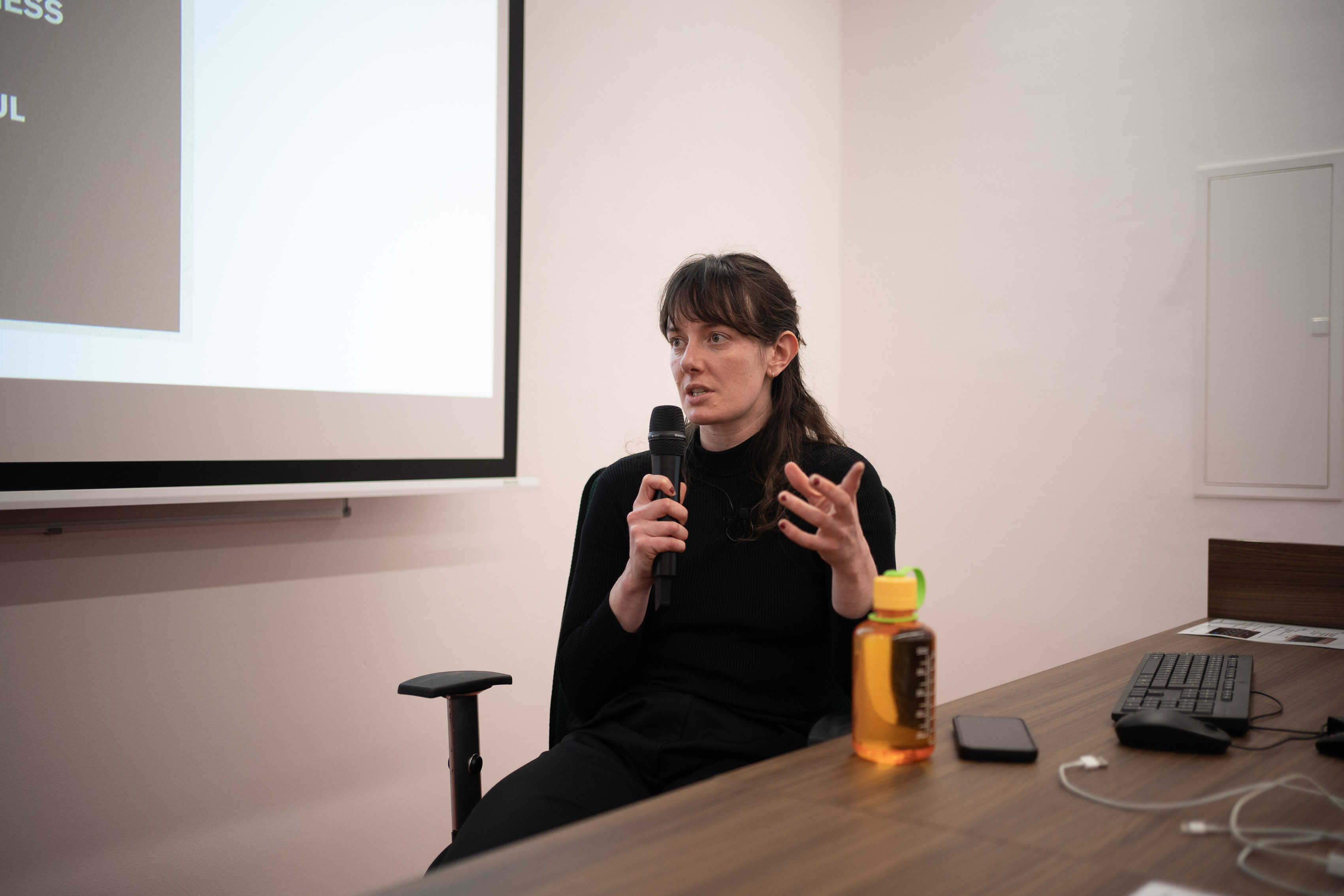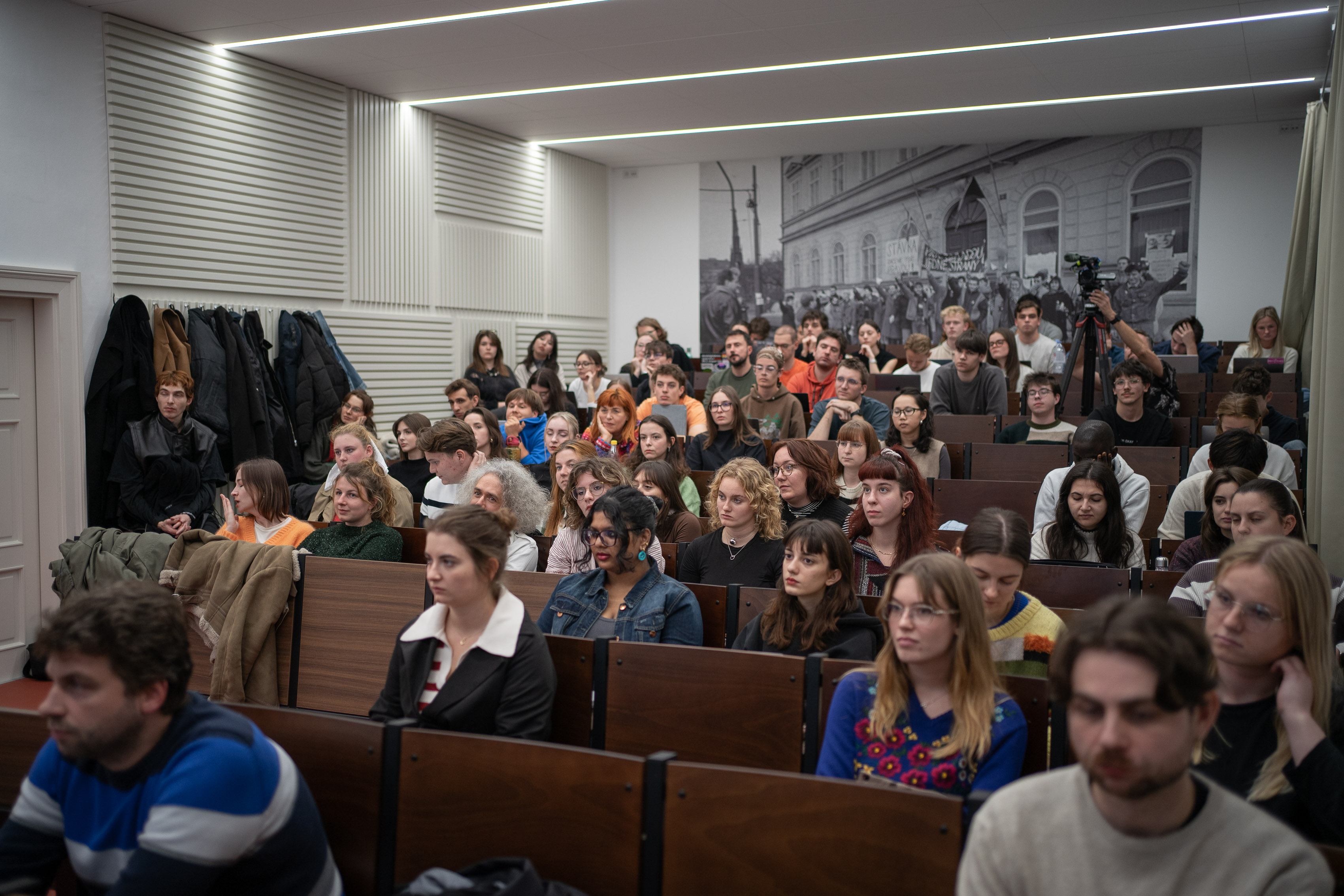Laura Snapes at ICSJ: Cultural journalism has its irreplaceable place

Laura Snapes at ICSJ: Cultural journalism has its irreplaceable place
"Music journalism used to have the power of narrative and mythologizing. Today, however, many musicians feel that they have taken this power into their own hands thanks to social media," said Laura Snapes of The Guardian, where she is the music editor, during a debate at the ICSJ on Monday 4 November as part of the Media Mondays lecture series. In a conversation with Miloš Hroch, she reflected on how the current crisis in cultural journalism and the media in general affects her work and the daily running of the editorial office.
Also a freelance music journalist, Snapes has contributed to major publications such as Pitchfork and NPR, and her writing has also appeared in The New York Times and Vogue magazine. She is also the author of Liberté, Egalité, Phoenix!, an oral history of the French pop-rock group, published by Rizzoli. "She is one of the key voices in music journalism that has moved the profession and the music scene for the better," Hroch said when introducing her.
During the debate, Snapes mentioned several examples that she said reflect the aforementioned crisis. She spoke about the various challenges that cultural journalism faces, from the rise of social media, to the gradual commercialisation and reduction of budgets, to the narrowing of the space that music journalism receives in the media, and the underrepresentation of women and minorities.

For example, The Times recently published an interview with Robert Smith of The Cure. The newspaper presented the text in a way that gave the impression of an authorial and exclusive interview conducted in person. It is only later in the text that the reader can learn that this was an interview recorded by Smith's publishing company, which was subsequently made available to several media outlets and is now freely available on YouTube.
"People like Smith know they can afford to do this because the media craves access to stars," Snapes explained. "But thanks to social media, they can create their own stories, so it seems they don't really need us. Robert Smith hasn't had any particularly controversial moments in his career, but he still doesn't want to lose control by talking to a journalist without setting conditions. And in the last fourteen years, working in this profession, I see this as the biggest transformation," she concludes.
However, Snapes added that she does not want to discourage those who would like to pursue the profession: 'Cultural documentation and contextualisation are as important today as ever. In my opinion, music is so important because of all the artistic means it offers the most direct and immediate expression of the self. Any person today can record a song and share it online where it can find an audience. (...) And that's why music has always been crucial in advocating for marginalized voices and communities."

The discussion included questions about the growing popularity of pop, the Taylor Swift phenomenon, and the rise of female singers such as Charli XCX and Sabrina Carpenter. Snapes also reminisced about her professional beginnings and shared other experiences and significant moments she has witnessed. "The fact that music journalism still manages to spark a massive discussion, in my opinion, proves that it has an irreplaceable place, even though some musicians and musicians pretend that it is no longer important," Snapes believes.
-- Author: Lucie Kotvalová
You can watch the full debate on YouTube.


